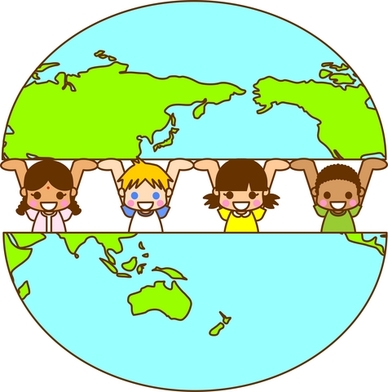
Good for foodies, by the way. And we're all foodies in a way, right?
 A bridge in Florence Want to know what it's really like in Italy, from a fellow student who's there right now, experiencing it all? Well you don't have to go far – all you've got to do is click here to check out Catherine Willbrand's blog "A Taste of Italy." It's full of pictures, interesting stories and insights on the country. Take a look! Good for foodies, by the way. And we're all foodies in a way, right?  When you're in a new environment, it's easy to assume that your greatest challenges will be related to practical stuff. How do you buy a bus ticket? Where do you go shopping? What's expensive, what's cheap? What do you do if you get sick? But beyond that there's a less tangible challenge to living in a new country. Understanding the citizens of your home country and making sure they understand you. As we're all aware, cultures are different and people are different. Fortunately for us, people are also all people and, also fortunately for us, most people like getting to know other people. That doesn't mean we shouldn't prepare for the challenge of cross-cultural communication. In fact, some would say it's crucial to have an idea of the mentality and the assumptions made by people in certain cultures. Why? Because you'll make friends faster, you'll be less likely to judge the locals, and you'll know how to communicate who YOU are to your new friends. And beyond that, it might even help you in your future career. People who know how people beyond their own patch of grass think are valuable. Finally, it can help you understand foreigners visiting the US. Instead of thinking they're just "different," you might actually understand where they're coming from. How to prepare? Why, reading, of course! This PBS article on "Common cross-cultural challenges" takes an analytical look at the six most common obstacles people encounter when trying to communicate with others. Skip it if it looks too academic and serious for you, but in all honesty it's worth a look. It'll teach you to identify the specific things you differ on with the person you're talking to, and with that knowledge you'll be able to make progress in that communication. The article breaks down communication challenges into three categories: 1) Different communication styles 2) Different attitudes towards conflict 3) Different approaches to completing tasks 4) Different decision-making styles 5) Different attitudes towards disclosure 6) Different approaches to knowing. What next? Why, reading, of course! If you're REALLY serious about this, check out Amazon.com's offerings. Lots of books to help you out. Next: Of the simpler stuff, we have wikihow's understanding different cultures. Short and sweet. Finally, we have Oxford University's tips for its students going to study abroad. Also short, sweet, and to the point. But most important... keep your mind open and appreciate how lucky you are to have the chance to meet so many people new to you. by Fedor Zarkhin  by Lucas Moore If you want to learn what it's really like in Argentina, don't ask me – I've never been there! Instead, check out Lucas Moore's blog on his experiences there this summer through our internship program. He's already posted some great photos and stories, all of which should help give you an idea of what it's like. Who knows, you might like how it looks and end up going there yourself! by Fedor Zarkhin  by Valeriya Potapova Being abroad offers ample cause for excitement. All the new sights, sounds, smells... the fascinating architecture, the people, absolutely everything! It's easy to lose yourself in a brand new world. And while there are few things more exciting than exploring a new country, that doesn't mean there aren't hazards to avoid. So what we all ought to understand is that almost anywhere you'll be able to find people who'd like to take advantage of your excitement and, possibly, your naïveté. The solution? Act on your excitement but keep your wits about you! And to help you do just that we have Kelly Robins, of travelinsurance.org, who has written an excellent post on the top 8 tourist scams. Watch out – someone might come and try to pull one of these on you, straight out of the blue. Click here and learn about the 8 most likely ways locals might try to trick you and make a dime. by Fedor Zarkhin |
AboutFollow this blog to keep up with J-School Study Abroad. For more information visit MU Journalism Study Abroad.
Archives
February 2014
Categories
All
|
